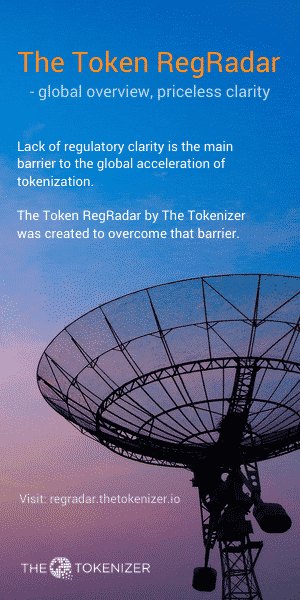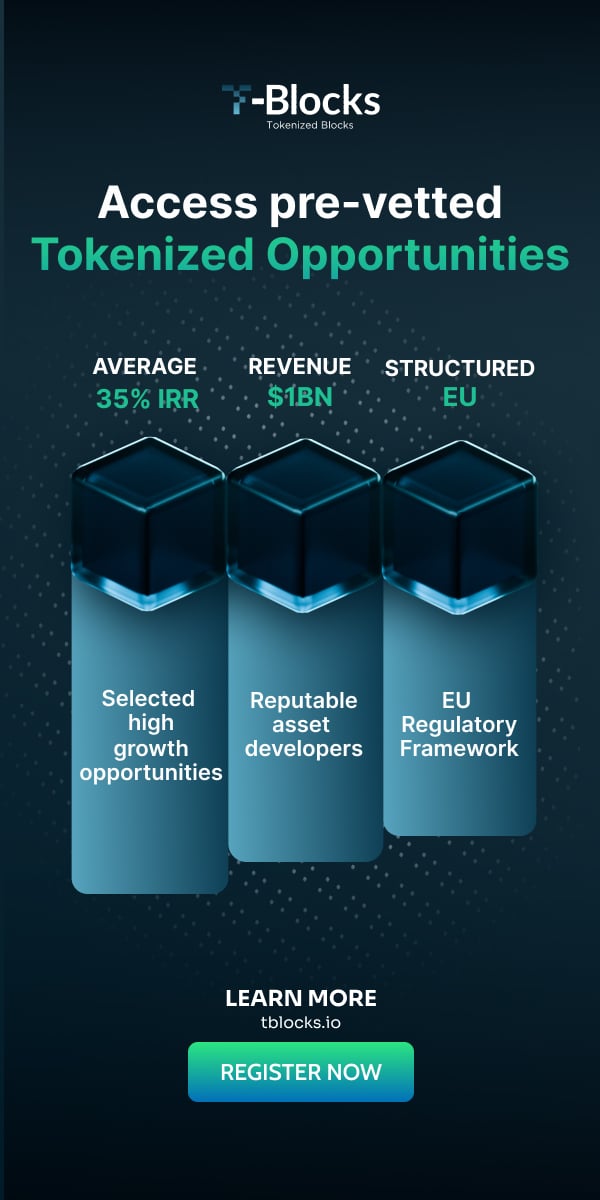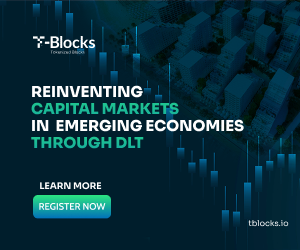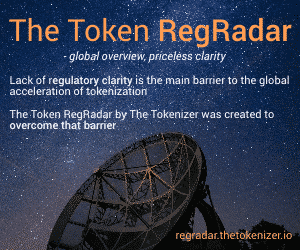Real estate is ready for tokenization
One of the industries where tokenization will soon be a game-changer is the real estate industry. By using blockchain, it is possible to tokenize houses, apartments and properties and represent them on the blockchain. This will shake up the real estate market and inevitably change this rather traditional industry. Blockchain has great potential, as it creates trust and helps shape a world of transactions without friction. Tokenization will, among other things, solve the problems of liquidity in the commercial real estate sector. It offers numerous forms of application and pioneers in the industry are already leading the way by developing promising projects.
In this article, we will take a closer look at how tokenization of real estate works, the advantages, and the use cases. Tokenization will be a large trend in 2021 as fragmented ownership possibilities enable investors to build a risk optimized portfolio. The future is digital, and blockchain is now bringing this development to one of the oldest industries. It was about time.
By Nicolas Weber, Head of Business Development at Amazing Blocks
The concept of tokenization is gaining more attention again and is picking up momentum. Ideas and projects are being worked on everywhere, and one of these use cases is the tokenization of real estate.
The underlying technology is blockchain. In simplified terms, a blockchain is a distributed, decentralized database stored on a large number of servers. A one-time update on one server results in the simultaneous update of data on all servers. Transactions on blockchain-based platforms can never be altered or deleted, and tokens can now be linked to these transactions, mostly as digital representations of assets, money, or securities.
Tokenization solves many known problems of the industry
Especially during the COVID-19 pandemic, problems of the real estate sector such as the dependence on physical meetings for contract conclusions once more become apparent. Procedural difficulties and inefficiencies are jeopardizing the success of this industry.
Furthermore, a large number of intermediaries (lawyers, brokers, financial institutions, etc.) still causes, to a certain degree, avoidable and costly friction. In order to establish the necessary trust between these intermediaries and to guarantee compliance a high amount of paperwork is required. These cumbersome circumstances lead to increased costs and time expenditure. If real estate is tokenized, however, inefficient and timely processes through intermediaries become obsolete, as the blockchain relies on the “peer to peer” principle (person to person transaction). Blockchain technology, therefore, creates trust between two contractual partners and guarantees safe processing through its technical basis. It increases transparency and automation while enabling the international transfer of the tokens (shares of real estate) in seconds.
Real estate in itself is not mobile and sales/acquisition processes are very complex. In addition, unforeseeable events, such as construction errors and natural disasters, can have a negative impact on liquidity. Although blockchain cannot counteract physical risks, it does make it possible to design solution processes efficiently and cost-effectively. This significantly increases liquidity and mitigates the negative impact. Above all, however, an enormous liquidity boost is generated by the possibility of fragmenting real estate investments through tokenization, i.e. offering smaller shares effectively and at any desired price and the associated “partial tokenization”. This allows to effectively use the intangible assets of the property by selling certain shares. Until now, this has not been possible, which transforms the static process of selling into a dynamic one and offers owners much more flexibility.
This grants investors the opportunity to diversify their portfolios. For institutional investors as well as for retail investors. An example of how tokenization could be applied could look like this: Normally you have to pay rent or buy a property completely. With tokenization a mixture of these two options is possible. You could own 60% of the property and tokenize 40%. This 40% can be offered on a secondary market and can work as a mortgage. For this, you will not need a financial service provider or a bank. Necessary capital can thus be obtained at any time through assets that are already owned and not yet fungible. In general, it can be said that smart contracts make the entire investment process faster and safer. Without the need for a middleman, these processes can take place in a matter of seconds, again saving time and money.
Potential of tokenized real estate
Equipped with register features, real estate tokens can map the corresponding ownership and liquidity relationships in the digital world. This enables efficient and above all daily liquidity management of real estate. It is possible to have the entire spectrum of properties converted into digital assets by means of a blockchain (i.e. without a deed or analogue land register entry). Another option is payments to the owners, which are mapped in this way. The alimentation of real estate is a suitable instrument for asset managers to create liquidity efficiently and cost-effectively. In addition, a door is now opening for institutional investors to previously tied-up capital.
The new model reduces direct and indirect marginal costs due to the tradability of part-ownership and the increased liquidity of the asset itself. In addition, the land transfer tax is avoided, as it was previously significantly reduced by high liquidity premiums. This makes it possible to liquidate properties efficiently without deducting costs. It is now possible to trade actively on the secondary market without liquidity discounts. This offers simple and cost-saving possibilities to invest in real estate at any time. Location or friction costs caused by superfluous intermediaries would also not play a role. Furthermore, it also offers an adjusted user interface for asset managers and their institutional investors. This gives investors and financial institutions access to traditional and completely new asset classes (e.g. equity tokens). Compliance and technical security are guaranteed. The important activity of safekeeping includes the storage of private keys, which are necessary for the transmission, storage and, above all, secure safekeeping of tokens. Here, startups such as Amazing Blocks offer a secure, customer-oriented alternative to existing systems.
The decentralized concept of blockchain enables property owners and investors to come together without the involvement of an intermediary. Although notaries are still needed for the process, for instance, the new legislation in Liechtenstein offers a very efficient way in this respect as well. You can either tokenize the real estate itself as an AG in Liechtenstein and then trade and sell the shares, which will then be in the form of tokens. Or proceed via a holding structure in such a way that you tokenize your company which owns the real estate and then trades the tokenized shares. The first solution implies that the individual property itself has the status of a legal entity of which one then holds shares. The second option is particularly suitable in the case when you want to tokenize a larger real estate portfolio.
This affects the purchase and sale of real estate since the costs of e.g. legal structuring and brokerage fees account for a considerable proportion of the total transaction sum. Especially in the case of partial sales, this is the basic requirement for their realization on a wide scale.
Future outlook
The simple concept of tokenization, converting rights to an asset into a digital token will have a significant effect on the real estate industry. Enabling the trading of digital assets, including tokenized shares of real estate, on secondary markets, blockchain technology will fundamentally change the way of financing and processing in this sector. It is time that the real estate industry gets ready for Web 3.0 and starts to truly participate in the digital transformation. Aspects of the tokenization such as the fragmentation of ownership will be of great value to institutional as well as retail investors. With tokenization a true diversification of portfolios is achievable. If investors can mitigate their risks better by not having to buy 100% of one asset and instead can now partially participate, we will witness an increase in capital inflow.
For retail investors, this development will provide a much bigger number of opportunities to invest, even with small amounts of capital. While we still have a long way to go before this 200 Trillion dollar market will be a part of the emerging token economy, the accompanying benefits make it hard to neglect this future development: The minimum required investment size will be smaller. Additionally, tokenization will reduce the high barriers to entry and contribute to changing an industry plagued by high entry barriers and a lack of liquidity. Tokenization can open this illiquid market and help to democratize this sector – while simultaneously allowing new great amounts of capital to enter it. Another important aspect is that the underlying blockchain technology will enable to trade tokenized assets every day, 24/7, increasing the liquidity as well. However, for this to happen, regulators have to implement laws and regulations like the Liechtenstein Token Act that allows 1) the transition from the traditional market to the token economy and 2) set the standards for a compliant secondary market.
If we look at the transaction volume of the real estate investment market in Germany in the years 2004 to 2020, we see a rapid, relatively even (except of course for the crash around 2008) increase from 21 billion euros to 80 billion euros. This perfectly underlines the importance and positive future prospects of this industry. It is now much easier to participate in this growth through tokenization via software providers. The real estate sector is finally ready for the disruptive digital age.
Image by Free-Photos from Pixabay
More Articles:
You Might also Like





















